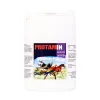Calcium & Vitamin D for Eggshell Strength: The Key to Healthier Eggs
The Essential Role of Calcium, Vitamin D, and Grit for Racing Pigeons
When it comes to racing pigeons, peak performance is not just about training and genetics—it starts with proper nutrition. One of the most critical yet often overlooked aspects of a pigeon’s diet is the balance of calcium, vitamin D, and grit. These essential nutrients play a crucial role in maintaining bone strength, muscle function, eggshell integrity in breeders, and overall health.
For pigeon fanciers aiming for top results in one-loft races or competitive events, understanding how to optimize these nutrients can give your birds a significant advantage. Let’s break it down step by step.
Why Calcium is Crucial for Racing Pigeons
Calcium is essential for more than just strong eggshells in breeding pigeons—it’s a key mineral for skeletal health, muscle contractions, and nerve function. Racing pigeons exert themselves during flight, and a calcium deficiency can lead to fatigue, poor endurance, and even skeletal deformities over time.
Signs of Calcium Deficiency in Racing Pigeons
If your pigeons lack adequate calcium, you may notice:
✔️ Weak eggshells in breeding pairs
✔️ Fragile or deformed bones in young birds
✔️ Muscle tremors or poor flight endurance
✔️ Increased stress fractures or injuries
✔️ Poor performance in races due to weakened muscles
Best Calcium Sources for Racing Pigeons
Ensuring your pigeons receive enough calcium is essential. The best sources include:
- Oyster Shell Grit: Provides a slow-release form of calcium that supports sustained absorption.
- Limestone Grit: A highly digestible calcium source commonly included in racing pigeon diets.
- Calcium Supplements : Powdered calcium carbonate or liquid calcium can be added to feed or water.
- Eggshells (Crushed & Dried): A natural and economical way to recycle calcium.
- Calcium-Fortified Feeds: High-quality racing pigeon feeds often contain added calcium.
The Role of Vitamin D in Calcium Absorption
Even if your pigeons consume plenty of calcium, they won’t fully absorb it without adequate vitamin D. Vitamin D3 helps transport calcium from the bloodstream into bones and eggshell formation, ensuring maximum utilization.
How to Ensure Racing Pigeons Get Enough Vitamin D
- Sunlight Exposure: The best natural source of vitamin D! Pigeons need at least a few hours of direct sunlight daily.
- Vitamin D3 Supplements : These can be mixed with feed or water, especially for indoor loft birds.
- Cod Liver Oil : A natural source of vitamin D that also provides essential omega-3 fatty acids for flight endurance.
- Fortified Feed: Many premium racing pigeon feeds are enriched with vitamin D to enhance calcium absorption.
Grit: The Unsung Hero of Digestion and Nutrient Absorption
Grit is an essential component of a racing pigeon’s diet. Pigeons don’t have teeth, so they rely on grit in their gizzard to grind food, aiding in digestion and improving nutrient absorption—including calcium.
Types of Grit and Their Benefits
- Insoluble Grit (Flint or Granite Grit) : Helps break down hard grains, improving digestion and nutrient absorption.
- Soluble Grit (Oyster Shell or Limestone Grit): Slowly dissolves in the digestive system, providing a continuous calcium source.
By offering both types of grit, you ensure that your pigeons can digest food effectively and maximize calcium intake for strong bones and peak racing performance.
How to Provide Calcium, Vitamin D, and Grit to Racing Pigeons
1. Offer Free-Choice Calcium & Grit
Place separate containers of oyster shell grit and flint grit in the loft at all times. Pigeons will instinctively consume what they need.
2. Feed a High-Quality Racing Pigeon Diet
Look for a balanced feed containing adequate calcium (2-3%) and added vitamin D3 for enhanced absorption.
3. Provide Sunlight Exposure
If possible, allow pigeons to spend time outside to naturally synthesize vitamin D.
4. Supplement as Needed
- Add calcium powder or liquid calcium to water a few times per week.
- Use cod liver oil to boost vitamin D intake, especially in winter months.
- Mix fine oyster shell grit into feed for added calcium intake.
The Impact of Proper Nutrition on Racing Performance
A well-balanced diet enriched with calcium, vitamin D, and grit can significantly impact your pigeons’ overall health and race performance. Here’s how:
✔️ Stronger Bones & Muscles Reduces injury risk and improves endurance.
✔️ Optimal Eggshell Quality Ensures breeding success and strong young birds.
✔️ Better Digestion Maximizes nutrient absorption for peak energy levels.
✔️ Increased Racing Stamina Proper calcium metabolism aids in muscle contractions, reducing fatigue.
✔️ Healthier Pigeons Strong immune function supports overall loft health.
Final Thoughts: Strong Birds Start with Strong Nutrition
If you want your racing pigeons to perform at their best, optimizing their diet with calcium, vitamin D, and grit is a must. These essential nutrients help build strong bones, support muscle function, and enhance digestion—giving your birds the competitive edge they need.
By focusing on calcium-rich diets, vitamin D absorption, and digestive support with grit, you can ensure your pigeons stay in top condition, whether in training, breeding, or competition.
Are your pigeons getting the right balance? Try these tips today and watch your flock soar to success!
“Until next time, keep them healthy and flying high!”


